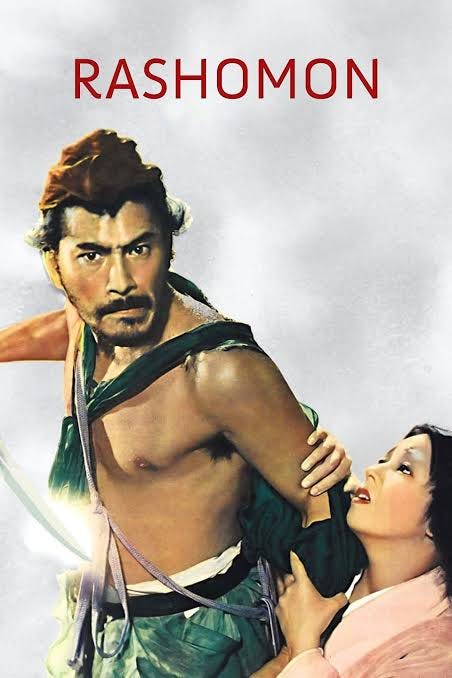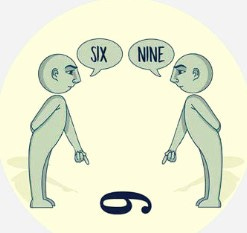The Great Master Akira Kurosawa made a movie in 1949 in Japan. It was called Rashomon (the gate in Kyoto)
The storyline is simple: A death happened. Four different people testify separately to explain what *exactly* happened. This is where things get complicated. The camera (or the audience) is seen to be interrogating each witness separately. But you do not hear the questions. You only hear the answers. Each witness describes the situation, the surrounding sights and sounds - and the people.
[The visuals are stunning. Most shots are from the camera seeing things through the trees looking directly at the sun. No movie had ever done that to capture the fluidity of the motion ever before.]
All of this is done in Kabuki style - purely visual. Most conversations are barely there. For non-Japanese audiences, the acting often looks overly theatrical.
Soon, you realize that they all have different points of view of the same supposed event. And then you realize why: They all have their own personal interest in describing what happened. Is any version true? Kurosawa does not tell us.
There is now a catch phrase - the Rashomon Effect:
I saw the movie when I was fifteen. I have been haunted by it ever since. Whenever some adverse event happens in my life, I think back about how I saw it and imagine how others around me saw the same event.
A Fifty Year Old Event
One such event occurred when a kid was drowning in a pond in our hostel when I was an undergrad student at the Indian Statistical Institute Calcutta. I was studying in my room. A classmate of mine came rushing to my room, “Tapen, Tapen, XYZ is drowning.” I will never forget the frantic urgency in his voice. It still rings inside me. I rushed out, jumped in the water…. and the kid was saved.
I deliberately avoided using the phrase “I saved him” above.
Did I? I thought so. I still think so.
But was it not possible that he could have struggled ashore without my intervention?
Possible.
That begs the question: Did I really save his life?
Did I tell my parents about what happened?
No.
My logic: They would have unnecessarily worried about how I put *my* life in danger. I did not want that.
I saw the entire event as my kartavya (duty or responsibility): I happen to swim well. I have taught hundreds of people how to swim. It was my social duty - with no expectation about a payback.
Executive observation: Life is (mostly) not transactional. Fame, money, adulation, prestige are fleeting periods of happiness. The bulk of happiness comes from within, not from without.
I did tell my brother - twenty years later.
Decades later, I told and retold the story to my students as an anecdote about my life. They always asked me, “Oooh! Did you get a medal for that?”
No.
It turns out that a lot of people tend to exaggerate their own heroism and create their Rashomon Effect to take credit for things that they may or may not have actually done.
I dearly wish that this episode is not one such thing in my life.
Executive sad end
There is a sad tailpiece to that story. XYZ became an accomplished scientist only to be run over in a car accident right near where he might have drowned four decades earlier.
https://en.wikipedia.org/wiki/Chivukula_Anjaneya_Murthy
My only happy thought is that if he had drowned the rest of his life would not have unfolded like that.
There were some witnesses around the pond when the whole drama took place. I often wondered how *they* saw the event. Their versions would certainly not be the same as mine. But, I do (secretly) hope that they saw my role in the survival of that kid.
Some of my friends who are reading this will hopefully react and tell me their versions. Maybe someday I will make a movie about that - Rashomon ISI Kolkata! I look forward to hearing from them - especially the person whose frantic voice still resonates inside me.
[I will have more to say about the Rashomon Effect with a more recent personal life experience.]




